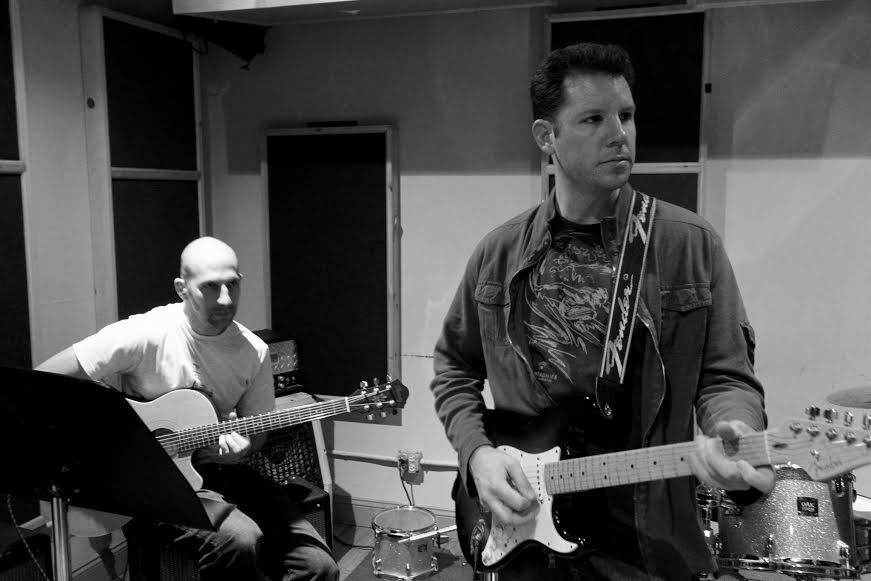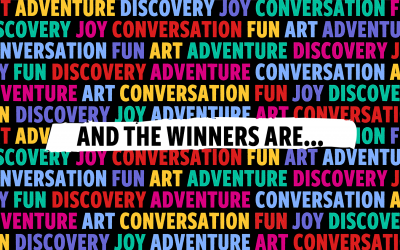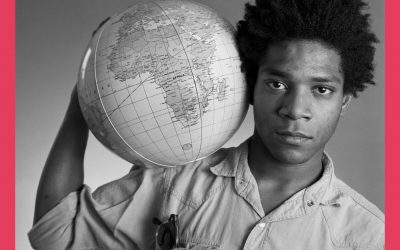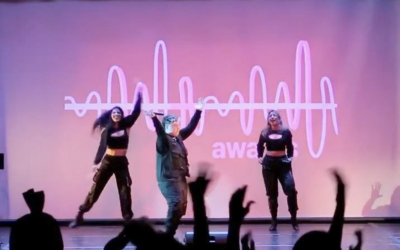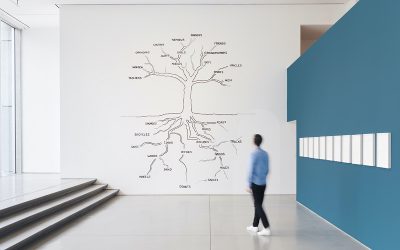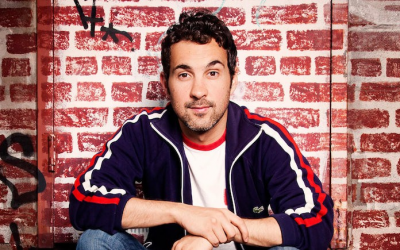Sometimes the most interesting people are only a few cubicles away. In the case of Marc Lawrence, who I worked with on and off for two years at Viacom, he always seemed to have something going on beyond his workload at the office. More specifically, outside of the office, he was regularly producing, writing and playing for other artists.
In doing some Q&A with Marc, I was not only able to explore why Marc takes on so many different sorts of projects, but how he is able to get them all done. There was a lot to learn from this interview, although those seeking more information on Marc can contact him directly through his website.
What were some of the albums that inspired you to pursue a music-related career?
Marc Lawrence: I was all over the map, and still am. A few that come to mind are The Black Crowes’ The Southern Harmony And Musical Companion, Neil Young’s Harvest, Stevie Ray Vaughan’s The Sky Is Crying, De La Soul’s 3 Feet High And Rising, and A Tribe Called Quest’s The Low End Theory. Also, tons of Grateful Dead, Jerry Garcia Band, Phish and Allman Bros. live recordings.
How did you start working in music licensing?
M: After college, I reached out to just about every record label in the Tri-State area, and eventually got an interview with Pam Narine at Sony Music, who managed the licensing team for their compilation albums. She taught me a lot within a few months. I was a Publishing Coordinator, researching and confirming copyright info, negotiating rates and getting approvals from songwriters and their music publishers. From there, I had an opportunity to move out to California to work for eMusic.com, licensing music for the first-ever digital download subscription service. Another great experience with great people.
And how did you wind up working on the production end of music?
M: I did an internship at Right Track Recording in my senior year working for their GM, Barry Bongiovi, who often had all three studios booked with big budget major label projects. I mostly got the studios cleared out and ready for the next session – also made coffee, but got a good taste being around so many talented musicians and producers. Within a really short time while I was there, they had sessions with Whitney Houston & Mariah Carey, Biohazard, Pat Metheny, Brand Nubian, Babyface, and Hank Shocklee.
After I moved back from California, I reconnected with the reggae artist Bigga Haitian at a show in NYC. He was looking to record some new material in between projects, and I had been looking to get into producing music for a while too. I took Bigga to my childhood friend Brett Smith’s home studio in the East Village to demo a few songs. We were all psyched with the results, so we kept things going. Brett then helped get me set up with my own home studio, and we produced, mixed and mastered the Bigga Haitian Sak Pase album. Around the same time, DJ Bazooka Joe started DJing for Black Sheep. They needed a studio on short notice to record a few exclusive tracks for their upcoming mixtape before going on tour, so I invited them over for a session, recorded and mixed Dres’ vocals. Dres was also finishing up the new Black Sheep album From The Black Pool Of Genius and I offered to do the mastering. That was a solid boost for the credits. Some great features including a Native Tongues reunion track with Q-Tip of A Tribe Called Quest, Dave of De La Soul, and Mike Gee of Jungle Brothers.
For someone unfamiliar, what is mastering?
M: Mastering is the post-production process of getting an audio mix ready for distribution. Boosting the levels to be consistent with music on the radio, balancing out the levels from track to track so the volumes are consistent across an album, EQ where needed, editing the tracks – like fade outs – and making sure there’s a nice flow from track to track…things like that.
Do you have a production or mastering credit you’re most proud of?
M: “Hot Damn” by evitaN – Dres of Black Sheep and Jarobi of A Tribe Called Quest’s new group — is definitely up there. That’s the first one where I have credits across the board: production, mastering, guitar, bass and songwriting. One of the many tracks I co-produced with DJ Bazooka Joe, with more coming soon. The past six months have been crazy, though, mastering projects for Method Man (the lead single and title track from his brand new album The Meth Lab), Chuck D (featured on Zeke Thomas’ “Blackness” alongside Jasiri X), and the new Angry Birds Friends theme “Here Come The Birds” by eight-year old prodigy Sidney Max featuring Dres (Sid’s dad), which was produced by DJ Premier. Also gotta shout out Jerry Johnson (sax player from Steel Pulse), who I’ve mastered seven solo albums for since I moved back from California, including his collaboration with the late great Sugar Minott. Jerry has been in the studio working on a dub reggae album which should be killer. Stay tuned.
Have your licensing and production careers paths ever crossed?
M: It’s funny how that happens every once in a while. For MTV World’s series Rebel Music, we were looking to license a brand new track from Sister Fa, a Senegalese hip-hop artist. It was recorded and mixed at a local studio, but they couldn’t get it mastered soon enough. So I did a mastering session that same night, got the artist’s approval the next morning, and everything worked out great. Also, a few tracks I co-produced were used in TV and film, and I handled the licensing.
Having a relatively common-sounding name, have you ever been confused for the writer/director Marc Lawrence?
M: Oh man, that guy totally messes with my Google results (laughs). I’ve actually thought of submitting music to him, but haven’t actually done it yet. Seems like it’d be too confusing.
What do you think the biggest misconception is about clearing music?
M: In my experience working with artists and musicians, the biggest and most common misconception is that as long as they give credit to the original songwriters, they can record someone else’s song without a license.
Understood if you wouldn’t want to go on record about it, but what was the toughest clearance situation you have encountered? Is it the timeline that’s the toughest part, or is it usually the negotiating the terms with rights-holders that gets you?
M: I’ve had a lot of tough clearance situations over the years. It’s usually a combination of a tight deadline and tight budget that makes it difficult. Sometimes it’s even difficult to track people down for permission, especially when they’re on tour. I get anxiety any time I hear Journey’s “Don’t Stop Believin’.” We had some tough negotiations trying to license that song for a VH1 series after it was used in The Sopranos, and ended up skipping it altogether.
Do you have a goal or predetermined path for your career? Or do you prefer to work on things one gig at a time?
M: On the production side of things, I keep an open mind and collaborate with other artists, musicians and producers as often as possible. I’m always looking to build up the credits, and always surrounding myself with talented musicians. I usually prefer to work on things one gig at a time, but lately I’ve been juggling multiple projects. I have a hard time saying “no” when it comes to music.
Is there an area of the music field that you haven’t worked in yet but one day hope to?
M: I’ve thought about tour management on and off for a really long time. That’s a tough job on so many levels, but it’d be great way to travel and see the world. I’d love to get into music supervision, too.
In terms of staying productive, are there any tools or apps you’re especially dependent on?
M: For better or worse, I’m totally dependent on the iPhone – reminders for everything, the Notepad, Voice Memos, Piano, Beat Tapper and Garage Band apps for musical ideas. I do a lot of mobile recording sessions and playing on other peoples’ tracks, so I rely on the Line 6 Tone Port for guitar, bass and vocals, along with the Akai MPK Mini keyboard controller which even comes in handy on flights.
When you have a free moment away from work, how do you prefer to spend your time?
M: Lots of surfing, snowboarding, live music and hanging out with family and friends.
Finally, Marc, any last words for the kids?
M: Stay in school, eat your vegetables and don’t talk to strangers. Use your resources. Listen closely. Ask questions. You never know when your next opportunity will present itself. Always be prepared. Read more Darren Paltrowitz. Thanks so much for the interview, Darren!
-by Darren Paltrowitz

